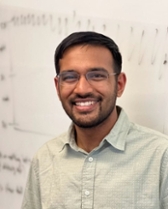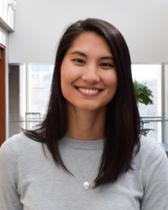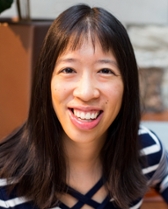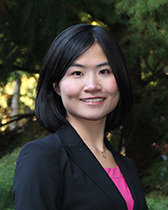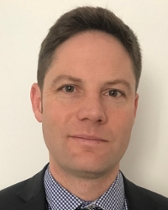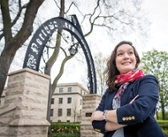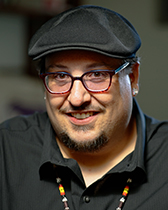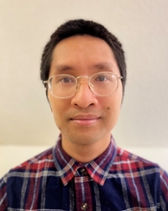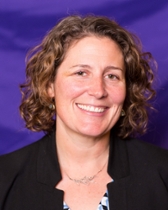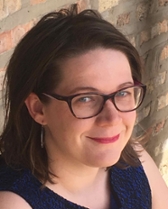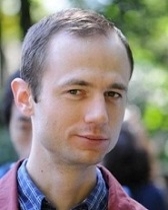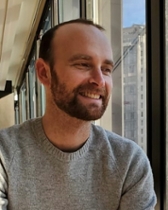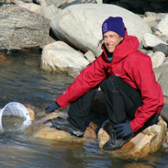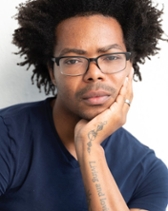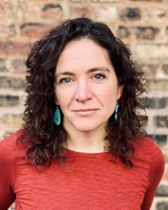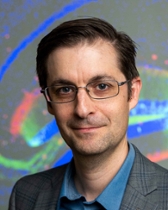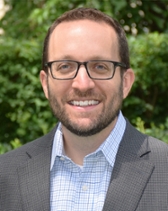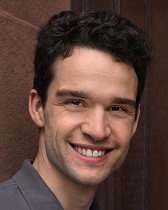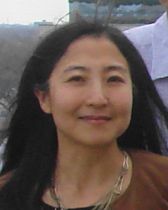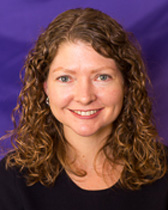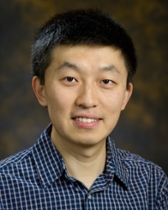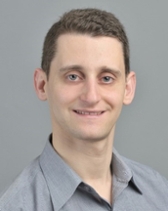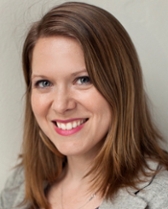Tenured and Promoted Faculty 2022-2023
Tenured Faculty 2022-23
Vivek Bhattacharya
Associate Professor
- PhD Institution: MIT
- Home Department: Economics
- Profile
Vivek Bhattacharya is an industrial organization economist whose research interests lie in auctions, financial regulation, and antitrust. His recent work has studied the design of procurement mechanisms, including onshore oil auctions and R&D contests run by the Department of Defense; the effect of fiduciary duty on the provision of financial advice; the impact of regulation on defined contribution plans; and the stringency of US antitrust enforcement. He was selected to present in the Review of Economic Studies Tour in 2017. He is currently an affiliate of the National Bureau of Economic Research and an Associate Editor at the Journal of Political Economy: Microeconomics.
Annette D’Onofrio
Associate Professor
- PhD Institution: Stanford University
- Home Department: Linguistics
- Profile
Wen-fai Fong
Associate Professor
- PhD Institution: Harvard University
- Home Department: Physics and Astronomy
- Profile
Yingni Guo
Associate Professor
- PhD Institution: Yale University
- Home Department: Economics
- Profile
Professor Guo's work has been published in top academic journals such as American Economic Review, Econometrica, the Quarterly Journal of Economics, Review of Economic Studies, and Theoretical Economics. She is a Fellow of Society for the Advancement of Economic Theory. She serves as associate editors at Theoretical Economics and American Economic Journal: Microeconomics.W. Walker Hanlon
Associate Professor
- PhD Institution: Columbia University
- Home Department: Economics
- Profile
Julia Kalow
Associate Professor
- PhD Institution: Princeton University
- Home Department: Chemistry
- Profile
Doug Kiel
Associate Professor
- PhD Institution: University of Wisconsin-Madison
- Home Department: History
- Profile
Doug Kiel (Ph.D., University of Wisconsin–Madison, 2012) is a citizen of the Oneida Nation and studies Native American history, with particular interests in the Great Lakes region and twentieth century Indigenous nation rebuilding. He is working on a book manuscript entitled Unsettling Territory: Oneida Indian Resurgence and Anti-Sovereignty Backlash. The Oneida Nation of Wisconsin, a community that had been dispossessed of their New York homelands in the early nineteenth century, yet again suffered devastating land losses as a result of the Dawes Act of 1887—a policy that President Theodore Roosevelt once called “a mighty pulverizing engine to break up the tribal mass.” Kiel’s book examines how the Oneida Nation’s leaders strengthened the community’s capacity to shape their own future by envisioning, deliberating, and enacting a dramatic reversal of fortune during the twentieth century. His book also examines the origins of recent litigation between the Oneida Nation and the Village of Hobart, a mostly non-Native municipality that is located within the boundaries of the Oneida Reservation and seeks to block the tribe from recovering land that was lost a century ago.
Prior to joining the Northwestern faculty, he taught at Williams College, Columbia University, the University of Pennsylvania, and Middlebury College. He is the recipient of grants and fellowships from the Ford Foundation, Woodrow Wilson National Fellowship Foundation, the Lyndon Baines Johnson Foundation, the American Philosophical Society, the Newberry Library, and the School for Advanced Research (SAR) in Santa Fe, NM, among others.
Beyond the university, Kiel has worked in several museums, testified as an expert witness in regards to Indigenous land rights, and in 2008 was as an Indigenous Fellow at the United Nations Office of the High Commissioner for Human Rights (OHCHR) in Geneva, Switzerland. He currently serves on the advisory committee for the renovation of the Field Museum’s exhibition on Native North America.
His publications are available to download.
Bao Le Hung
Associate Professor
- PhD Institution: Harvard University
- Home Department: Mathematics
- Profile
Kim Marion Suiseeya
Associate Professor
- PhD Institution: Duke University
- Home Department: Political Science
- Profile
Lauren Stokes
Associate Professor
- PhD Institution: University of Chicago
- Home Department: History
- Profile
Dr. Stokes earned her BA in History and German Studies from Swarthmore College and her Ph.D. in History from the University of Chicago before joining Northwestern in 2016. She is using tenure to embark on new research projects, including on mobility in the jet age, racism and anti-racism in divided Germany, and right-wing environmentalism in contemporary Europe.Alexander (Sasha) Tchekhovskoy
Associate Professor
- PhD Institution: Harvard University
- Home Department: Physics and Astronomy
- Profile
Tristram Wolff
Associate Professor
- PhD Institution: University of California, Berkeley
- Home Department: English
- Profile
Promoted to Full Professor 2022-23
Yarrow Axford
Professor
- PhD Institution: University of Colorado at Boulder
- Home Department: Earth and Planetary Sciences
- Profile
Marquis Bey
Professor
- PhD Institution: Cornell University
- Home Department: Black Studies
- Profile
Bey has published in numerous academic journals, and their expertise on trans subjectivity, nonbinariness, black feminism, and abolition has been featured in interviews with NPR, LGBTQ Nation, TIME Magazine, The Washington Post, CNN, USA Today, and New Books Network. Additionally, they have been awarded fellowships and grants from Northwestern’s Race and Justice Collaborative Seed Fund and Provost Faculty Grant for Research in Humanities, Social Sciences and the Arts, the Ford Foundation Dissertation, Humanities New York Public Humanities, and the 2020-2021 Sylvia Rivera Award in Transgender Studies.Laura Brueck
Professor
- PhD Institution: The University of Texas at Austin
- Home Department: Asian Languages and Cultures
- Profile
Daniel Dombeck
Professor
- PhD Institution: Cornell University
- Home Department: Neurobiology
- Profile
Daniel Galvin
Professor
- PhD Institution: Yale University
- Home Department: Political Science
- Profile
Benjamin Golub
Professor
- PhD Institution: Stanford Graduate School of Business
- Home Department: Economics
- Profile
Susannah Gottlieb
Professor
- PhD Institution: University of Chicago
- Home Department: English
- Profile
Susannah Gottlieb (B.A. Yale University, Ph.D. University of Chicago) teaches in the areas of twentieth-century literature and thought. Her interests include modern and contemporary poetry and poetics, continental philosophy and political theory, German-Jewish intellectual history, and Asian American literary traditions. She is the author of Regions of Sorrow: Anxiety and Messianism in Hannah Arendt and W.H. Auden (Stanford University Press, 2003) and Auden and the Muse of History (Stanford University Press, 2022). She is also editor of Hannah Arendt: Reflections on Literature and Culture (Stanford University Press, 2007). Some of her other articles and essays include “Two Versions of Voltaire: W. H. Auden and the Dialectic of Enlightenment” (PMLA); "‘Reflection on the Right to Will’: Auden’s ‘Canzone’ and Arendt’s Notes on Willing” (Comparative Literature); “‘Seit jener Zeit’: Hannah Arendt und ihre Literaturkritik” (TEXT + KRITIK); “‘With Conscious Artifice’: Auden’s Defense of Marriage” (Diacritics); “‘Everyone Is Welcome’: Arendt and the Spirit of Non-pomposity” (GFPJ); “Beyond Tragedy: Arendt, Rogat, and the Judges in Jerusalem” (College Literature); “Reflections on Ruin” (New Formations); “Homing Pidgins: Another Version of Pastoral" (Babel in America, Harvard UP); “Auden on History” (Auden in Context, Cambridge UP); “The Fallen Empire” (Auden at Work, Palgrave); “Autobiography and Arendt’s Defense of Poetry” (Bloomsbury Companion to Hannah Arendt). She is the founding Editor of the Drinking Gourd Chapbook Series at Northwestern University Press. Her current book project is entitled Constraining Voices: Arendt, Speech, Silence.
Gottlieb has delivered the Christian Gauss Seminar in Criticism at Princeton University; the Hannah Arendt-Reiner Schürmann Memorial Lecture in Political Philosophy at the New School for Social Research; the Hannah Arendt Lecture at the Cogut Center for the Humanities at Brown University; and the Joff Hanauer Lecture at the Simpson Center for the Humanities at the University of Seattle. Some of her other recent activities include lectures at the Institute for Advanced Studies in Culture at The University of Virginia; the British Academy at The University of Southampton; the Center for Philosophy and Critical Thought at Goldsmiths University of London; the Institute for Cultural Inquiry in Berlin; the Whitney Humanities Center at Yale; the Institute for Philosophy and Religion at Boston University; the Zentrum für Literature- und Kulturforschung in Berlin; the Center for Theoretical Inquiry at Indiana University; the Department of Germanic Literatures at the University of Pennsylvania; the Humanities Center at Vrije Universiteit Amsterdam; and a series of lectures at the Department of Literature and Theory at Beijing Normal University, Beijing.
Laurel Harbridge-Yong
Professor
- PhD Institution: Stanford University
- Home Department: Political Science
- Profile
Yuan He
Professor
- PhD Institution: Northwestern University
- Home Department: Molecular Biosciences
- Profile
The primary focus of the He lab revolves around two fundamental areas. Firstly, they investigate the intricate regulatory mechanisms involved in eukaryotic gene transcription at various stages. This exploration aims to unravel the complex orchestration of events that dictate gene expression. Secondly, the lab delves into the mechanisms by which diverse types of DNA damage are repaired, as well as the underlying reasons why deficiencies in these repair pathways contribute to the development of cancer predisposition or accelerated aging.
Cryo-electron microscopy is an immensely powerful tool employed by the He lab to uncover the structures of macromolecular assemblies at resolutions ranging from moderately high to near atomic levels. Notably, cryo-EM possesses several advantages, including its ability to work with smaller sample sizes and overcome limitations associated with the size of the system under investigation. Moreover, it enables the sorting of conformational and biochemical heterogeneity within a single sample, often under conditions closely resembling physiological environments. These inherent strengths, coupled with continuous technical advancements such as direct electron detectors and phase plates, position cryo-EM as an extraordinary tool for advancing our understanding of the intricate cellular processes that underpin life.Tessie Liu
Professor
- PhD Institution: University of Michigan
- Home Department: History
- Profile
Christian Petersen
Professor
- PhD Institution: MIT
- Home Department: Molecular Biosciences
- Profile
Nathaniel Stern
Professor
- PhD Institution: University of California, Santa Barbara
- Home Department: Physics and Astronomy
- Profile
Stern is a member of the NSF Materials Research Science and Engineering Center, DOE Center for Molecular Quantum Transduction, and Q-NEXT, a DOE National Quantum Information Science Research Center. At Northwestern, Stern has received the Early Career Research Award from the U.S. Department of Energy, the Young Investigator Award from the Office of Naval Research, and he was a Fellow of the Alfred P. Sloan Foundation. He serves as the Director of Undergraduate Studies in Physics and Astronomy and as co-Director of the Applied Physics Graduate Program.Elizabeth Tipton
Professor
- PhD Institution: Northwestern University
- Home Department: Statistics and Data Science
- Profile
